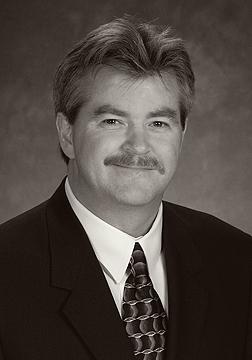Choosing Among Medical School Applications: Easier Said Than Done
Doctors are the result of a finely tuned selection process. Students applying for medical school are chosen based on the type of Physicians we anticipate they will need to become. It doesn't say this anywhere on the application but it is implied nonetheless. We look at today's Healthcare System and choose students who will have the best fit for it. Traditionally this system uses a combination of GPA, MCAT scores, personal statement, interviews and completing the pre-requisites for medical school. This system has worked well for the traditional, established model for delivering healthcare but what will happen if our healthcare crisis is really the sign of an emerging, new model for delivering healthcare? Are Physicians already trained in a traditional model of healthcare as capable of selecting future Physicians who will practice in an environment where an emerging, new model of healthcare is evolving?
Legacy Systems
The traditional model of healthcare is, in my view, a legacy system. The expression "legacy system" has been used in the computer industry and has been defined by some as "any information system that resists change." Others have described it as "inflexible", "difficult to integrate" and costly to maintain. In a recent description in Wikipedia the characteristics of a legacy system consist of the following:
1) "Large, monolithic, complex"
2) "Requires close to 100% availability"
3) "The way the system works is not understood"
4) "The user expects that the system can easily be replaced when this becomes necessary."
5) "The owner sees no reason for changing it."
With the exception of this last characteristic, it appears that, by all accounts, referring to the traditional model of healthcare as a legacy system is on target. Legacy systems don't show up overnight. They develop and mature over a relatively long period of time. They become very good at producing a product or delivering a service, but as they mature they reach a point of diminishing returns. This is what makes them vulnerable to disruptive innovation.
Sustainers Aren't Disrupters & Disrupters Are Sustainers
In Clayton Christensen's recent book Seeing What's Next he discusses innovation in the context of healthcare and states, "Improving the lives of people suffering from debilitating diseases is certainly a good thing. But it will not transform the healthcare industry into one characterized by affordability, convenience, and effectiveness. These things come through disruption." One of the things that makes legacy systems good at what they do is sustaining innovation, particularly the kind that sustains the legacy system. How they do that is to recruit people who are very good at sustaining innovation. People who are very good at sustaining innovation and who blend well with legacy systems tend to not be very good at disruptive innovation. They weren't recruited for their disruptive innovation skills, they were recruited for their sustaining innovation skills. So what does this mean for the future of healthcare?
Resistance to Disruptive Innovation
If our current model for delivering healthcare is a legacy system then the people who make up its core of human resources are committed to sustaining that system. These same people are also charged with recruiting the future human resources. This means our future Doctors. Based on this I predict that any innovation that is disruptive in nature is more likely to come from outside the traditional resources. Any disruptive innovation that improves "affordability, convenience, and effectiveness" risks resistance from those within the legacy system (like Physicians) particularly if it directly challenges their role in that system.
A New Type of Doctor for a New Type of Healthcare System
Future Doctors will need to be more flexible and willing to integrate into a rapidly changing Healthcare System. The old criteria may no longer be enough or even considered for future candidates applying to medical school. If we are really moving toward a new platform for delivering healthcare as I have proposed in this blog than the criteria for selection may need a disruptive innovation of its own. Pre-Med students may need to prove their "competitiveness" by demonstrating their ability to integrate as a team member in a complex-adaptive system. Either way future Doctors will, most likely, not be playing by the rules of the current system but a system that is still in its evolution. My advice to all medical school admission committees. As always, choose wisely and look to the future, because who you choose will be building the next legacy system.
Subscribe to:
Post Comments (Atom)

No comments:
Post a Comment